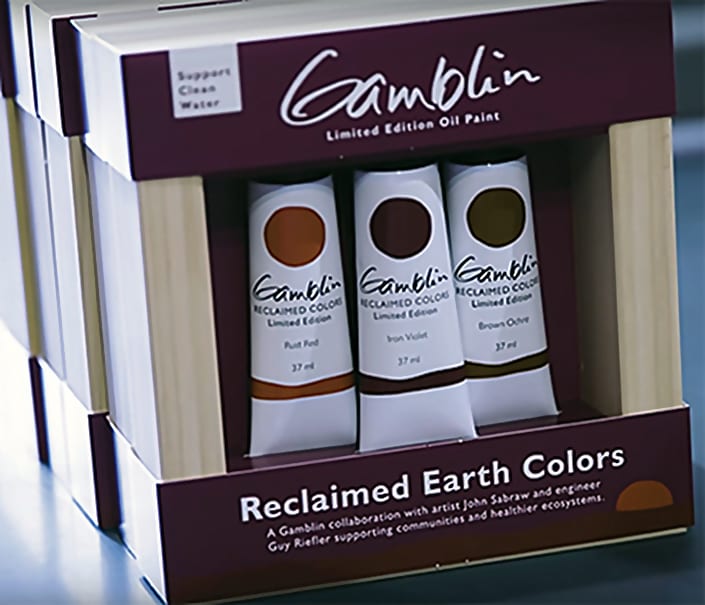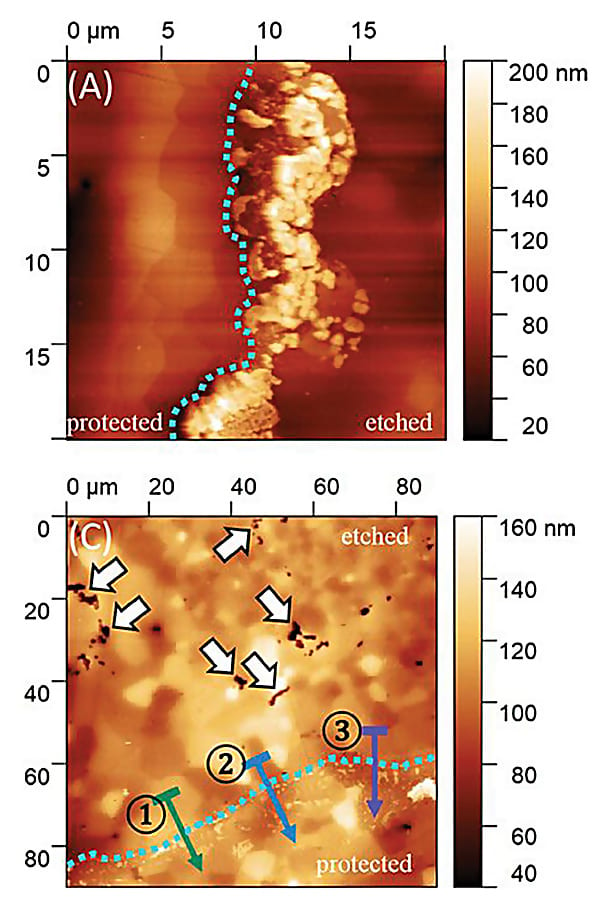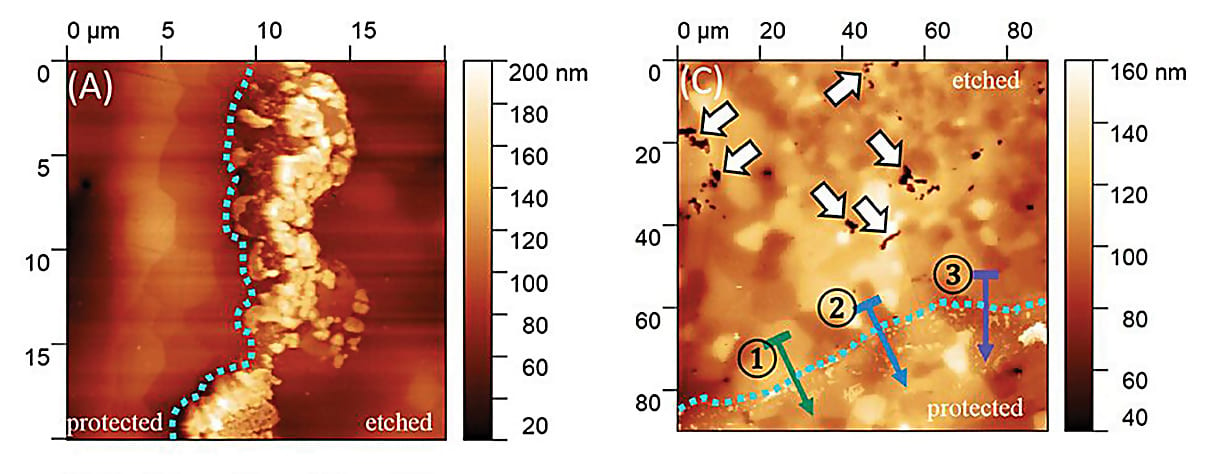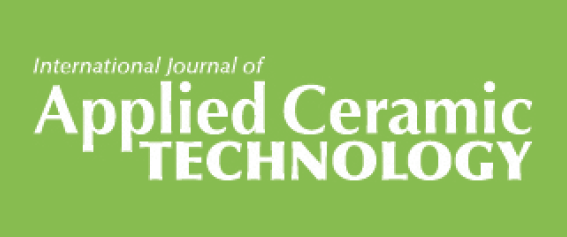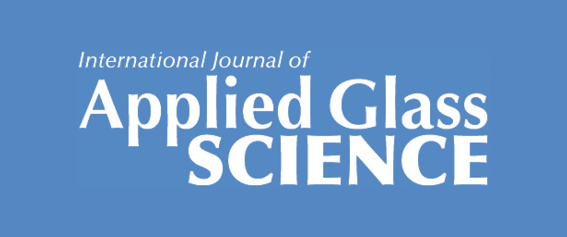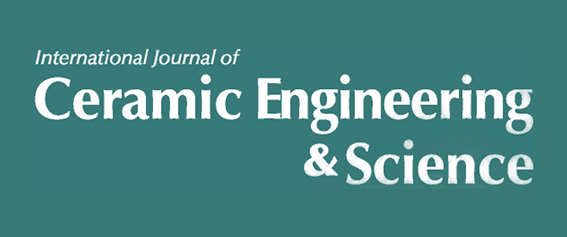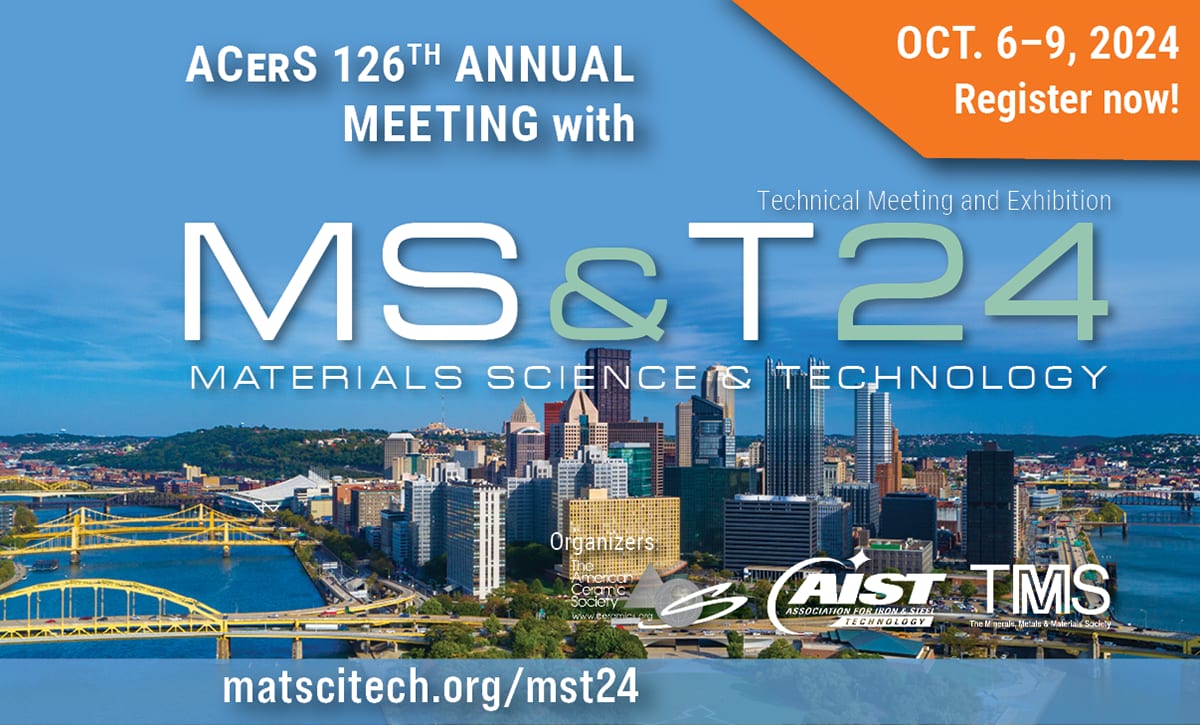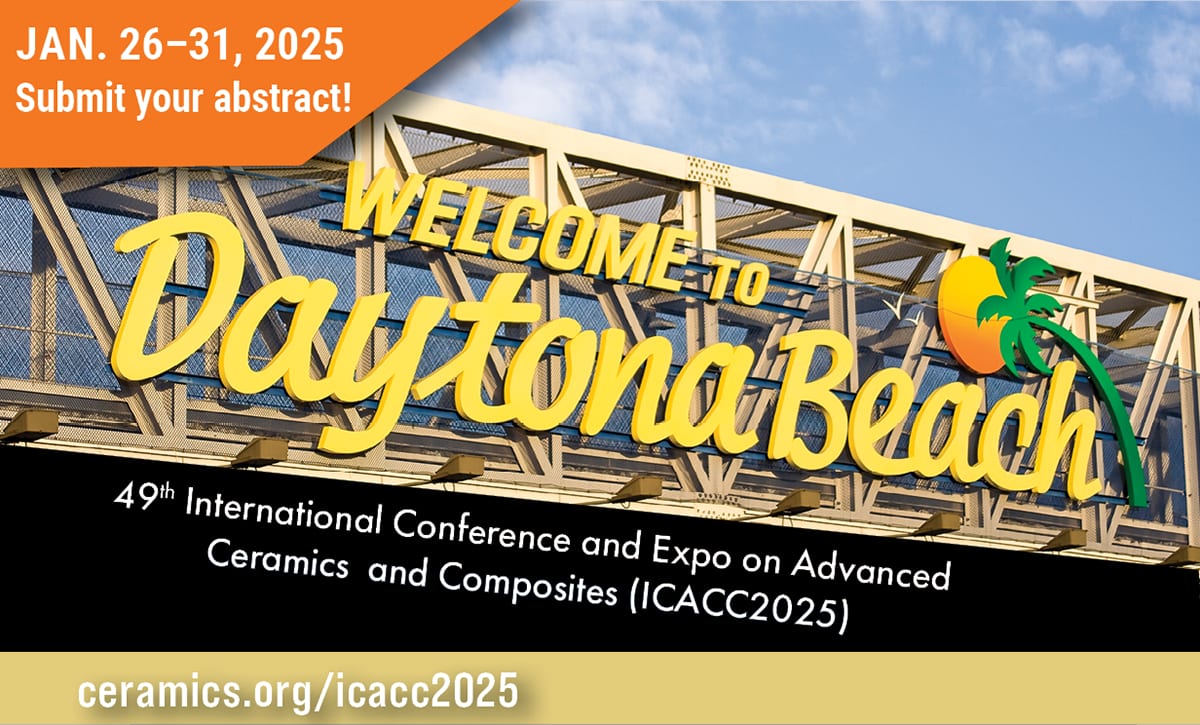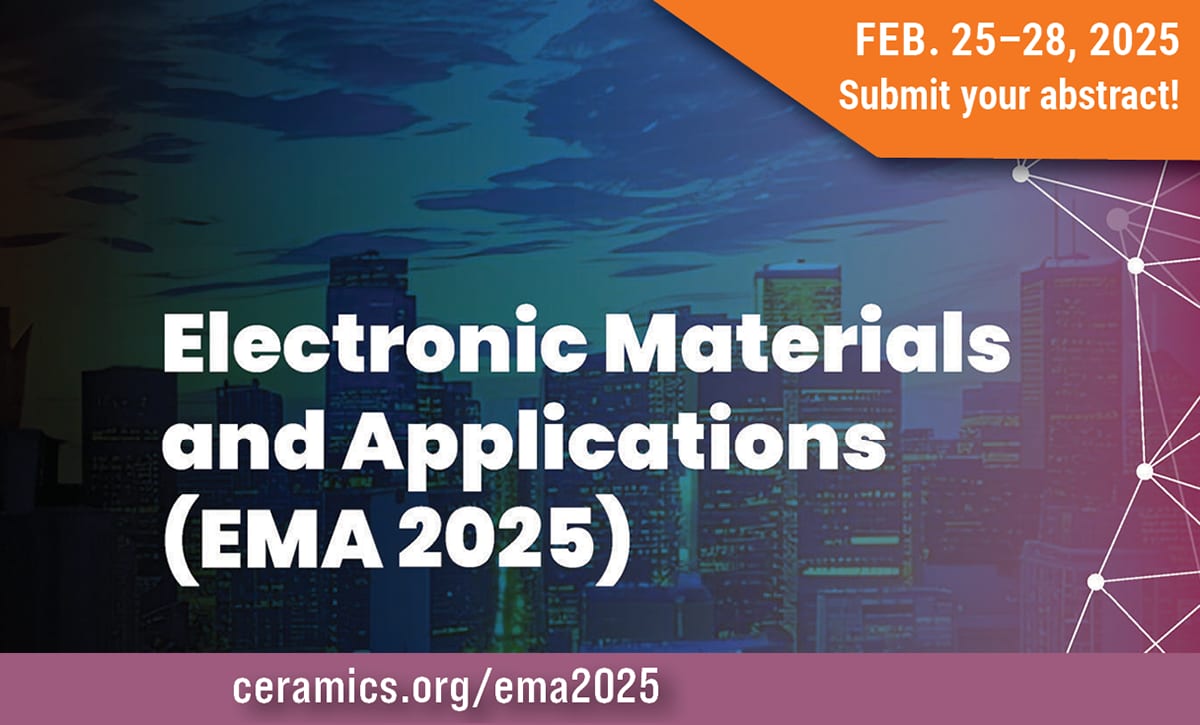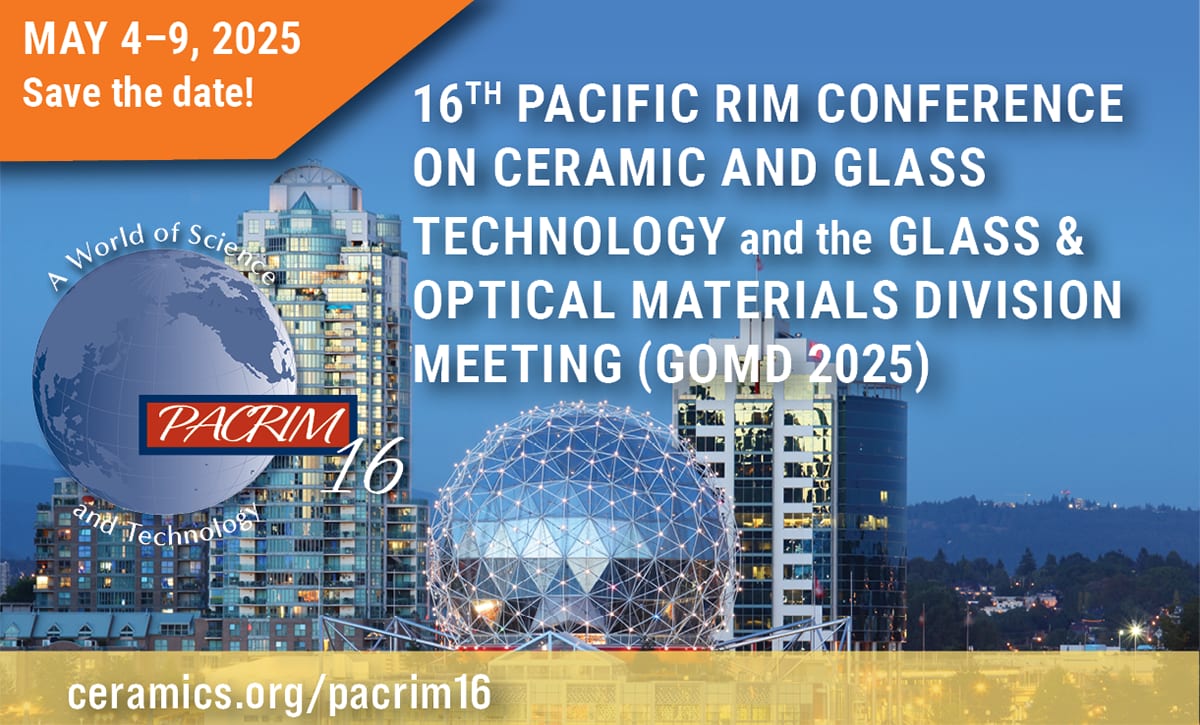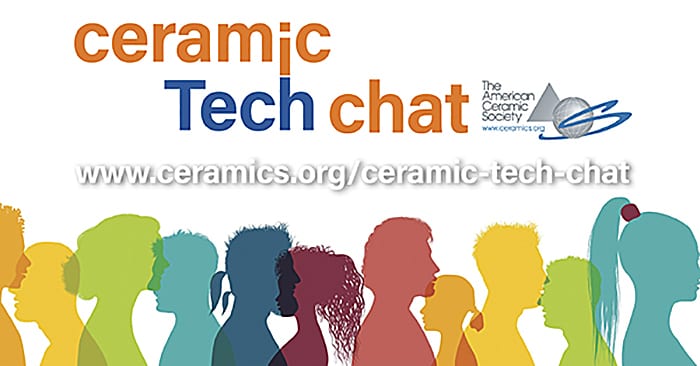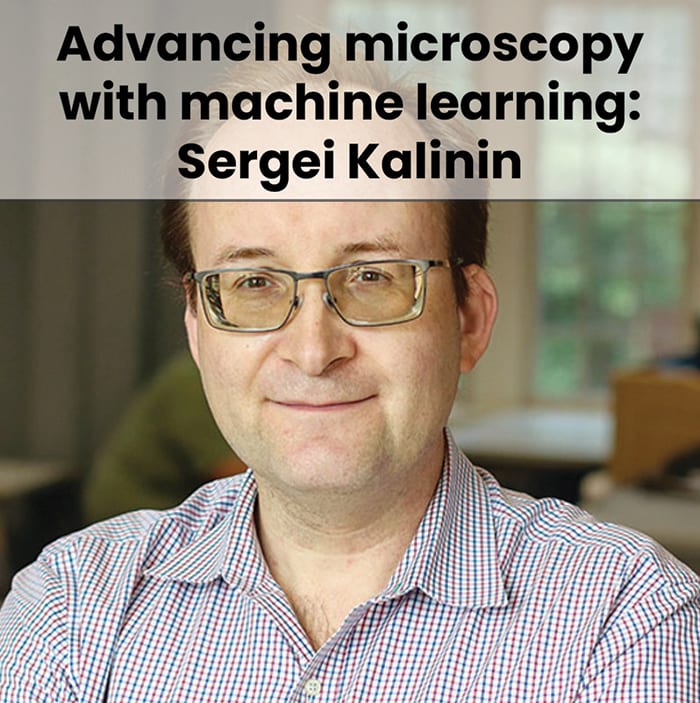
From pollution to pigments—Appalachian community turns mine waste into marketable product
Rural Action, an Appalachian-based nonprofit, aims to fund the remediation of water affected by acid mine drainage by selling pigments made from iron oxide extracted from the affected waterways.
Credit: Business Insider, YouTube
Research Briefs
Advances in Nanomaterials
Txg
Tx
In this month’s ACerS Journals Topical Collection, “Recycling and reusing ceramics and glass,” we explore some of the nuanced and various factors that must be considered when recycling and reusing ceramic and glass materials. View the collection.
In addition, the articles below represent but a few of the outstanding papers authored by current graduate students that were submitted for the ACerS Journals Rising Stars initiative and published in ACerS' four journals.
Credit: C. Stern et al., JACerS
- Correlative characterization of plasma etching resistance of various aluminum garnets
By C. Stern, C. Schwab, M. Kindelmann, et al.
Journal of the American Ceramic Society - Engineering grain boundary energy with thermal profiles to control grain growth in SrTiO3
By V. Muralikrishnan, J. Langhout, D. P. Delellis, et al.
Journal of the American Ceramic Society - Chromium-substituted bismuth titanate–niobate exhibiting superior piezoelectric performance for high-temperature applications
By Q. Wang, E. M. Liang, and C. M. Wang
Journal of the American Ceramic Society - Selective laser sintering and spark plasma sintering of (Zr,Nb,Ta,Ti,W)C compositionally complex carbide ceramics
By L. Trinh, Z. Hua, K. Bawane, et al.
Journal of the American Ceramic Society
Upcoming meetings
View the full event calendar at this link.
Check out these recent additions to the ACerS Webinar Archives:
Ceramic additive manufacturing, cold sintering, and defect metrology
Original air date: April 24, 2024
Hosted by: Washington, D.C./Maryland/Virginia Section
Featured speaker(s): Russell Maier
Navigating a scientific career in the national labs
Original air date: May 20, 2024
Hosted by: ACerS President’s Council of Student Advisors
Featured speaker(s): Rama Vasudevan
Ceramic Tech Chat: Sergei Kalinin
Hosted by ACerS Bulletin editors, Ceramic Tech Chat talks with ACerS members to learn about their unique and personal stories of how they found their way to careers in ceramics. New episodes publish the third Wednesday of each month.
In the June 2024 episode of Ceramic Tech Chat, Sergei Kalinin, Weston Fulton Professor of materials science and engineering at the University of Tennessee-Knoxville, shares how his development of advanced scanning probe microscopy techniques led to an interest in machine learning and describes some of the benefits, limitations, and challenges of adopting machine learning for materials research.
Check out a preview from his episode, where he discusses some of the challenges that come with using machine learning to tackle big data problems.
“The vast majority of machine learning algorithms are not causal. You have features and targets, but you can flip targets and features it is still a legitimate machine learning problem. As a result, the best majority of the machine learning methods that rely on big data can be useful under certain scenarios, but they’re no substitute for human intuition, decision making, and general planning. So they can help, but they cannot take over the human role for the time being.”
Listen to Kalinin’s whole interview—and all our other Ceramic Tech Chat episodes—at this link.
